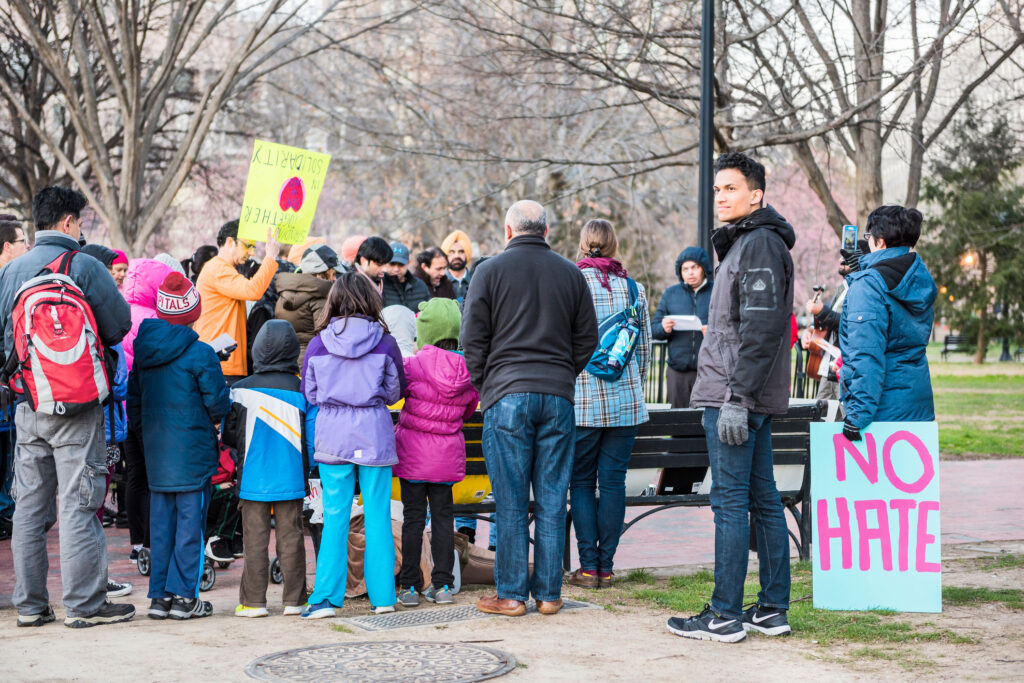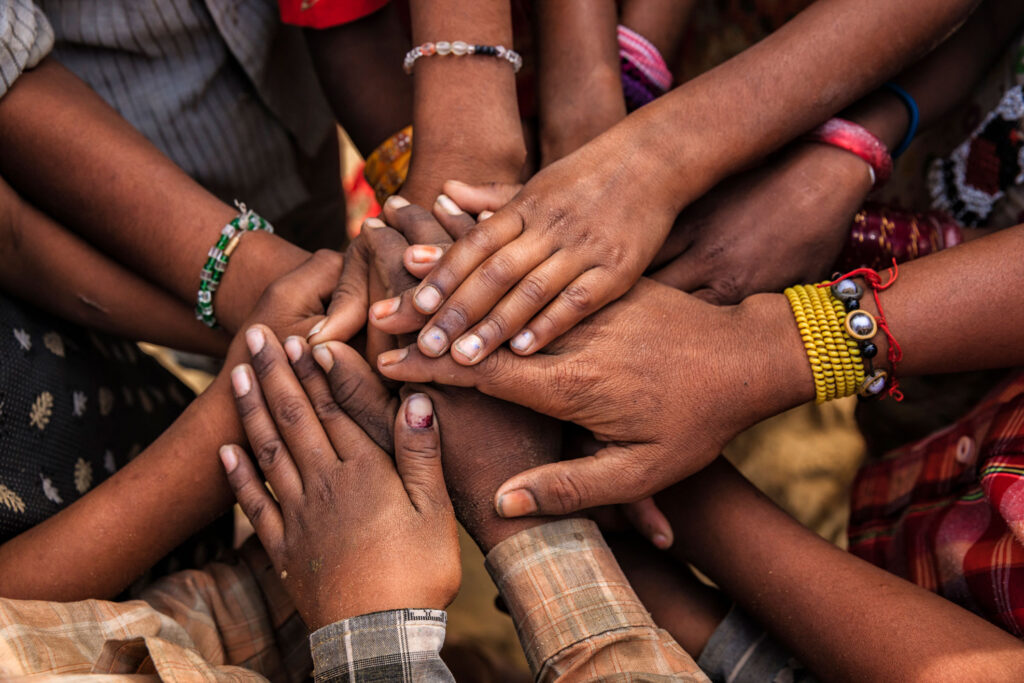Racial Equity & Inclusion
Like other communities of color, South Asian Americans have been subjected to violence, discrimination, and hate. Anti-Asian bigotry in particular, while often overlooked, dates back more than 150 years. Our community has refused to let that bigotry define us, and now, a storied history of heroism, trailblazing, and selfless sacrifice is as much a part of our story. Yet there remains an enormous amount of racial injustice we need to reckon with as a society. We must stand in solidarity with Black, Brown, Indigenous, and historically under-resourced communities to dismantle systemic racism that holds all of us back and build a more fair and just society for all.
The Challenge
In the wake of 9-11, discrimination and hate crimes against South Asian communities — and especially our Muslim and Sikh brothers and sisters — have skyrocketed: the Equal Employment Opportunity Commission saw a 250% increase in religious-based discrimination charges against Muslims following the attack on our nation. Shootings at places of worship like mosques, or gurudwaras such as the tragic shooting at Oak Creek in 2012, or those that target Indian nationals such as in Olathe, Kansas in 2017, continue to instill fear and stoke division in our communities.

South Asian candidates are inevitably subjected to discrimination and racism when they decide to run for office, as are professionals across numerous industries and sectors. And a lack of data disaggregation and reporting results in numerous disparities and inequalities such as in healthcare, climate justice, and housing.
Though the factors driving the rise in hate crimes and inequities are numerous, Impact believes that these incidents cannot be isolated as a new phenomenon and instead must be understood as part of a much longer history rife with anti-Asian and anti-immigrant laws, policies, and attitudes that traces back for more than a century.
In September 1907, a mob of five hundred white men in Bellingham, WA ransacked homes and rounded up 200 South Asian migrant workers to stay overnight in the basement of City Hall. They wanted to send a message, and unfortunately were successful: the entire South Asian population was driven out of Bellingham within 10 days. No one was ever held accountable for this act of domestic terrorism.
Today, hate against South Asian Americans comes in different forms: slurs against our community doubled between January 2023 and August 2024, going from 23,000 to 46,000 and spiking at the same time as the nomination of the first South Asian presidential candidate in American history. The rise in verbal abuse came alongside an uptick in violent threats. According to Stop AAPI Hate, 75% of the nearly 1000 online threats of anti-Asian violence in August 2024 were directed specifically at our community. These acts of hate don’t just exist behind a screen. 1 in 5 South Asian adults have reported physical harm, and 2 in 5 have reported institutional discrimination. The dangers of bigotry and racial violence are acutely felt by immigrant communities in America, and South Asian Americans are sadly familiar with feeling like “otherized” in our own homes and neighborhoods.
Far from the days of describing “Hindos” (Indians) as “dirty”, “mean”, and “undesirable”, the pervasive model minority myth also has the effect of excluding South Asian Americans from fully participating in democracy and pits them against other communities of color.
Often overlooked in the conversations, however, are the deep connections and ties between the Black Civil Rights Movement, the Indian Independence Movement, and the Immigration Act of 1965 that opened the doors for millions of Indians and South Asians to make America their new home and only came as a result of Black activism.
The Solution
At Impact, we believe that to write a new chapter and create a more inclusive and equitable democracy, we must build an awareness and a shared understanding of our communities’ history. Efforts to require the inclusion of Asian American history in curriculum are critical in attaining this goal.

Strengthening federal and state-level hate crimes legislation must also be part of the solution. Impact was proud to support the COVID-19 Hate Crimes Act of 2021 which passed Congress with an overwhelming majority and makes hate crimes reporting more accessible. We must also galvanize around efforts to disaggregate data by sub-ethnicities so we can understand how different communities are disproportionately impacted
Most importantly, we must continue fostering and cultivating alliances with other communities of color. Threats to immigrants are a danger to all Americans, new and old. Only through intentional allyship can we eliminate racial and economic bias and invite greater civic participation from all marginalized communities.